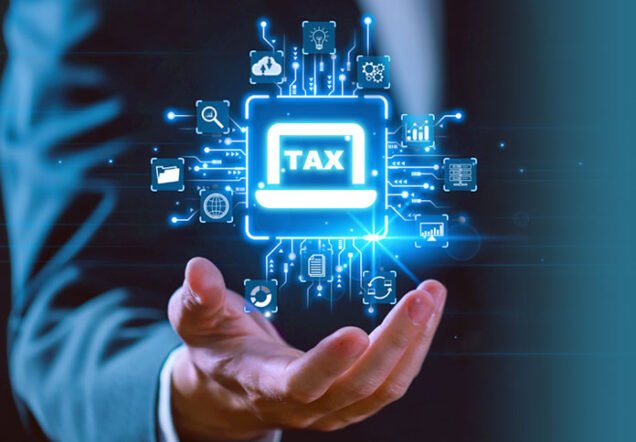The Benefits, Challenges, and Solutions for MTD for VAT
TAG Accountants Group, Chartered Accountants in Wolverhampton, are not just here to prepare accounts and tax returns, we have been busy in recent months supporting our clients in getting ready for Making Tax Digital (“MTD”) for VAT.
With that in mind, here are some reminders on what it is all about and what you need to do under the new system, as many companies will now be required to file their VAT returns online for the first time.
What is MTD for VAT really all about?
MTD is an HMRC initiative designed to revolutionise the UK tax system and eventually bring an end to self-assessment for tax. MTD aims to make tax administration more effective, efficient, and easier for taxpayers through the implementation of a fully digitalised tax system – in reality, HMRC believe SMEs make accidental/deliberate mistakes on their tax returns.
The MTD programme focusses first on VAT. For some VAT registered businesses and organisations whose taxable turnover is above the £85,000 threshold, the new rules apply to VAT periods that begin on or after 1st April 2019. They are now required to maintain their accounting records digitally in a software product or spreadsheet and submit their VAT returns to HMRC using a functional compatible software product that can use HMRC’s new Application Program Interfaces (“API”) platform to submit data.
These requirements do not apply to VAT registered businesses with taxable turnover below the VAT threshold (unless they have registered voluntarily for MTD for VAT) and these businesses will still be able to use HMRC’s existing VAT filing system.
Eventually, MTD for VAT may be extended to all VAT registered businesses, but this will not happen before 2021 at the earliest. Furthermore, from 2021 or later (date to be announced), MTD will be rolled out further to cover both income tax and corporation tax.
Are any VAT rules affected by the MTD change?
No changes have been made to VAT rules other than those that relate to digital record keeping and filing.
VAT returns will contain the same nine boxes as before although there will be scope to provide additional information to be submitted voluntarily.
The existing filing and payment deadlines for VAT remain unchanged.
The flat rate scheme remains, and digital records of supplies received are not required except for capital items which cost more than £2,000 VAT inclusive.
So, what are digital accounting records?
Businesses and organisations falling within MTD for VAT must keep digital records and submit VAT returns using MTD compatible software from the start of their first VAT return period beginning on or after 1st April 2019. This means for businesses with VAT quarters starting on 1st April 2019, their first MTD VAT return will need to be submitted by first week of August.
Information on MTD for VAT compatible software is available here.
https://www.gov.uk/guidance/find-software-thats-compatible-with-making-tax-digital-for-vat
For businesses that do not use a computerised accounting system, the use of spreadsheets, either to record individual transactions or as part of a suite of software and spreadsheets, is allowed, provided they are API-enabled or used in combination with an MTD compatible software product.
Where records are maintained in more than one programme or product there must be digital links between each of the software products/spreadsheets. In other words, information cannot be transferred manually between products.
For the first year, HMRC will not enforce the digital links requirement to allow some more time for links between legacy systems to be made digital.
Maintaining digital records does not mean that businesses must scan and store invoices and receipts digitally, so businesses can continue to keep documents in paper form. However, each individual transaction (not summaries) needs to be recorded and stored digitally.
Certain records, such as fuel scale charge calculations, partial exemption calculations, and capital goods scheme adjustments, are not included in the list of records that must be kept digitally.
Rather than detailing each individual transaction, retailers are now simply required to record gross daily takings. Consequently, there is no requirement for there to be a digital link between a business’s tills and its accounting records.
If applicable, will my business need to register for MTD for VAT?
The simple answer is yes – each business needs to individually sign-up to MTD for VAT at least 72 hours before the first MTD VAT return is due (or at least 7 working days before if VAT is paid by direct debit). HMRC will not automatically transfer businesses onto MTD. Registration can be done through the Government Gateway – guidance can be found at:
https://www.gov.uk/guidance/making-tax-digital-for-vat
Businesses need to make their accounting software aware that they are now registered on the MTD for VAT system, so that data will then submitted via the new API platform.
Need some help with all this?
MTD for VAT is a complex area and you and/or your business may need to seek out proper, professional advice to ensure compliance. So, if you don’t have an accountant, or, perhaps you do but it’s time for a different perspective, book a FREE initial consultation with our specialist tax team here at TAG Accountants Group, Wolverhampton by calling 01902 783172 or alternatively, just click HERE to discover how we could help guide you or your team through the entire process.
We very much look forward to hearing from you!
The Tenant Tax is starting to bite!
Private residence relief- changes afoot for 2020
